Skroutz Buyers Protection
Ιστορικά τραύματα και ευρωπαϊκή ιδέα, Από τη φρίκη των πολέμων και των ολοκληρωτισμών στο όραμα της ενοποίησηςCode: 12255498
- Authors: Γιώργος Κόκκινος, Έλλη Λεμονίδου, Παναγιώτης Γ. Κιμουρτζής, Σωτήρης Ντάλης
- Publisher: Ekdoseis Papazisi
- Μορφή: Soft Cover
- Έτος έκδοσης: 2016
- Αριθμός σελίδων: 584
- Κωδικός ISBN-13: 9789600232684
- Διαστάσεις: 21×14
Similar products

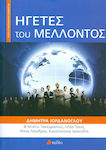
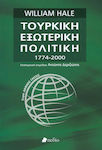

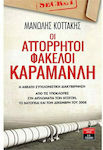 Top rated
Top ratedPolitical Books
Οι Απόρρητοι Φάκελοι Καραμανλή, The Unseen Shocking Governance
Ad from Xryso FteroAdded Top rated
Top rated
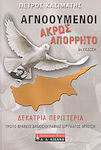
Political Books
Αγνοούμενοι: Άκρως απόρρητο, Δεκατρία περιστέρια: Οι τελευταίοι επιζώντες αγνοούμενοι της Κύπρου: Οι μυστικές αποστολές σωτηρίας τους
Ad from Xryso FteroAdded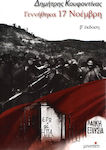
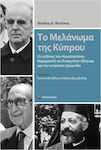
 Top rated
Top rated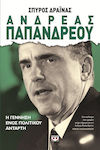
All shops
Prices are calculated for:Germany, Other Payment Options
- 17,23 €
- 16,96 €
- 18,55 €
- 18,55 €
Description
In the first two texts of the book, reference is made to the deep trauma that caused in the European soul and conscience: World War I (which is not randomly named the "radical destruction" of the past century), the new global conflict that followed two decades later and the horror of the Nazi Holocaust. Special emphasis is given to the ways of perceiving and managing this trauma, with main axes being the difficult and sometimes complex nature of the relevant processes, the significant differences by country and historical period, and the relationship between academic history and public discourse in dealing with the painful past. In the next two texts, the focus shifts to the current situation of the European Union. An attempt is made to analyze the crisis faced by the European project today and to examine historical and contemporary elements related to the creation, strengthening, and expansion of European institutions, as well as the conditions that contributed to the emergence, structuring, and spread of the current crisis. Among other things, there is discussion about the dominance of the economic dimension and a specific theoretical trend in the development of the Union, the inconsistencies of the federal vision, the educational policy at the community level, as well as current challenges arising from the impact (individually or collectively) of the economic crisis, the refugee issue, and the outcome of the British referendum.
Through the pages of the book, the inseparable relationship between the European acquis and its historical dimension becomes evident, both in terms of the developments that decisively contributed -with a heavy toll of blood- to the genesis of the European project, and in terms of understanding the factors that, with so frequent explicit or implicit references to the past, threaten to erode it from within today.
In an environment of multiple and complex challenges, very different and extremely multifactorial -in all its dimensions- compared to the prevailing atmosphere of the early post-war decades, historical self-awareness emerges as the only safe path to overcome the wounds that still remain open, to combat stereotypes, and ultimately to achieve a substantive approach between states and peoples. Through this approach, it is perhaps possible to return to the path charted by the great visionaries of the European idea at a time when the ruins and mourning from the two world wars were still palpable in every corner of the European continent.
Specifications
- Subtitle
- From the horror of wars and totalitarianism to the vision of unification
- Format
- Soft Cover
- Number of Pages
- 584
- Publication Date
- 2016
- Dimensions
- 21x14 cm
Important information
Specifications are collected from official manufacturer websites. Please verify the specifications before proceeding with your final purchase. If you notice any problem you can report it here.
Reviews
Verified purchase
- Paper quality
- Was it easy to read?
- Understanding of the subject matter
- Was it interesting enough?
- I liked the writing style
- I would read a book by the same author
- I would recommend it for reading







































